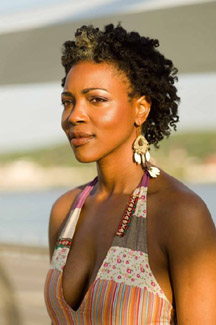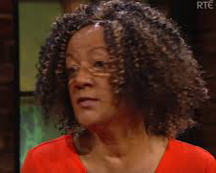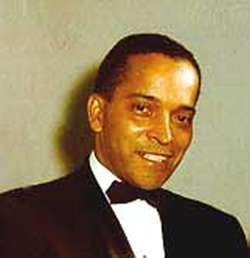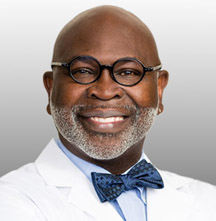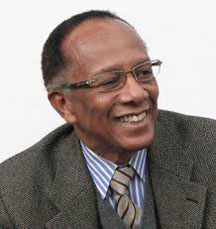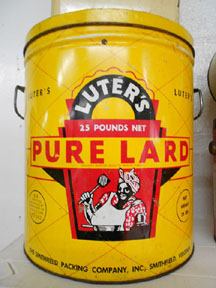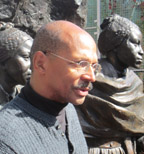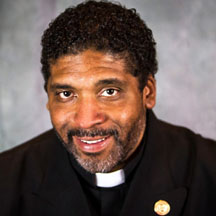It happens to all of us, we look at old high school and college pictures and say to ourselves, “Wow, I can’t believe I was that thin.” Some of us have gone to high school and college reunions and marveled at how much weight our classmates have gained. We remember a time where we could fit single size clothing and ate whatever we wanted without worrying about our waistline. Yet in 5, 10, and 15 years, weight gain has crept up on us and the calories from fast food don’t disappear as quickly.
There is actually a term for the weight gain that occurs during the years after high school and college. It is called “creeping obesity.” It refers to the small amount of weight gain (1-2 lbs a year) that happens every year from our 20’s to 50’s and can lead to numerous health problems as we age.
Many of us were more physically active in high school and college. Whether we were playing sports, involved in extracurricular activities, or walking miles on a college campus, we made physical activity a regular practice. Let us fast forward to adult life where careers, families, and personal responsibilities limit time for exercise.
Our personal responsibilities also lead to a lack of sleep and less time to plan nutritious meals. All of these are factors for gradual weight gain that can put us at an increased risk for developing type II diabetes, heart disease, and hypertension. One to two pounds a year may not seem like a lot a first, but when collected over several years, we can easily see a 40lb weight gain by the time we are in our 40’s.
April 13 – April 26, 2017
On The Dock This Issue:

Creeping Obesity: The Silent Killer
It happens to all of us, we look at old high school and college pictures and say to ourselves, “Wow, I can’t believe I was that thin.”
It happens to all of us, we look at old high school and college pictures and say to ourselves, “Wow, I can’t believe I was that thin.”
Ireland’s Forgotten Mixed-Race Children
In October 1958, when Rosemary Adaser was admitted, as an 18-month-old, to a mother-and-baby home in Dublin, her admission notes described her as “illegitimate and coloured.”
In October 1958, when Rosemary Adaser was admitted, as an 18-month-old, to a mother-and-baby home in Dublin, her admission notes described her as “illegitimate and coloured.”
These Are the Best (and Worst) States for Retirement
Among the best (and worst) states for retirement, Virginia is the highest ranking state with a significant Black population, ranking at number six, followed by Pennsylvania at number 15.
Among the best (and worst) states for retirement, Virginia is the highest ranking state with a significant Black population, ranking at number six, followed by Pennsylvania at number 15.
Support Alexandria's African-American History Museum
The collection contains documents and photographs about leading figures in African American history including Martin Luther King Jr.
The collection contains documents and photographs about leading figures in African American history including Martin Luther King Jr.
Woodhull Announces Official Recipients of 2017 Vicki Sexual Freedom Award
Woodhull will reward Loretta J. Ross and Dr. Willie J, Parker its 2017 Vicki Sexual Freedom Award at The 8th Annual Sexual Freedom Summit.
Woodhull will reward Loretta J. Ross and Dr. Willie J, Parker its 2017 Vicki Sexual Freedom Award at The 8th Annual Sexual Freedom Summit.
Tax Marches - Saturday, April 15
On April 15, there will be marches on Washington and in communities across the country.
On April 15, there will be marches on Washington and in communities across the country.
You may be thinking that major life responsibilities are inevitable. There’s nothing I can do about the weight gain. Not true. We can actually take small and immediate steps to avoid creeping obesity.
It refers to the small amount of weight gain (1-2 lbs a year) that happens every year from our 20’s to 50’s and can lead to numerous health problems as we age.
First, be patient. Recognize that 30lbs-40lbs did not accrue overnight. Therefore, it won’t melt away in a week. Set a realistic goal for weight loss and decide on small measurable steps to achieve it.
Secondly, aim for 10-20 minutes of physical activity every day. Small amounts of exercise coupled with a diet nutritious in fruits, vegetables, and protein can help you to avoid a 1lb -2lb weight gain each year. The key is consistency. Make the 10-20 minutes a regular part of your day.
Third, choose workouts that make you sweat! Walking is a great physical activity, but taking a stroll will not burn as many calories as a brisk walk. Vary your workouts. You can alternate walking with water aerobics, dancing, swimming, cardio machines, yoga, strength training, and group fitness classes. The more you vary your workouts, the less likely your body is to adapt to them - - and not burn as many calories.
Finally, practice meal preparation weekly. Spend the weekends preparing healthy meals for the rest of the week to avoid the temptation of fast food and unhealthy snacks when hunger strikes. Creeping Obesity doesn’t have to be a silent killer when we practice consistency, planning, and preparation.
It refers to the small amount of weight gain (1-2 lbs a year) that happens every year from our 20’s to 50’s and can lead to numerous health problems as we age.
First, be patient. Recognize that 30lbs-40lbs did not accrue overnight. Therefore, it won’t melt away in a week. Set a realistic goal for weight loss and decide on small measurable steps to achieve it.
Secondly, aim for 10-20 minutes of physical activity every day. Small amounts of exercise coupled with a diet nutritious in fruits, vegetables, and protein can help you to avoid a 1lb -2lb weight gain each year. The key is consistency. Make the 10-20 minutes a regular part of your day.
Third, choose workouts that make you sweat! Walking is a great physical activity, but taking a stroll will not burn as many calories as a brisk walk. Vary your workouts. You can alternate walking with water aerobics, dancing, swimming, cardio machines, yoga, strength training, and group fitness classes. The more you vary your workouts, the less likely your body is to adapt to them - - and not burn as many calories.
Finally, practice meal preparation weekly. Spend the weekends preparing healthy meals for the rest of the week to avoid the temptation of fast food and unhealthy snacks when hunger strikes. Creeping Obesity doesn’t have to be a silent killer when we practice consistency, planning, and preparation.
In October 1958, when Rosemary Adaser was admitted, as an 18-month-old, to a mother-and-baby home in Dublin, her admission notes described her as “illegitimate and coloured.” Fifteen years later, when she was pregnant and sent to a mother-and-baby home in Co Meath, they described her as “rather mature for her age; accepts her colour well.”
“My file is peppered with references to my colour,” she says. “The racism was relentless and brutalising. My formative years were devastated by it.”
Adaser is one of about 70 mixed-race people who have come together in the past few years as Mixed Race Irish, a campaign and support group. They believe they were taken into care because they were mixed race, that there was a different unspoken “policy” for them and that they suffered an “extra layer of abuse” because of their racial identity. They say racism was endemic, systemic, and systematic, in the care system and in Irish society, and that their experiences were particular to them.
“My file is peppered with references to my colour,” she says. “The racism was relentless and brutalising. My formative years were devastated by it.”
Adaser is one of about 70 mixed-race people who have come together in the past few years as Mixed Race Irish, a campaign and support group. They believe they were taken into care because they were mixed race, that there was a different unspoken “policy” for them and that they suffered an “extra layer of abuse” because of their racial identity. They say racism was endemic, systemic, and systematic, in the care system and in Irish society, and that their experiences were particular to them.
The group’s members live in Britain, the United States, China, and Ireland. They would like to be included as a distinct group in the Government-appointed Mother and Baby Homes Commission of Investigation, which has begun its work under Judge Yvonne Murphy. The commission will examine the issue of race in a module alongside disability, religion, and traveller identity, to see the extent to which residents may have been treated differently on any of these grounds.
- Read the rest of The Irish Times story
- See the short video from The Guardian
Rosemary Adaser was one of many mixed-race children considered illegitimate who was brought up in institutions run by the Catholic church in Ireland between the 1950s and 1970s. She tells of the abuse and racist treatment she suffered, and returns to her school in Kilkenny for the first time in 40 years and attempts to answer questions about her past
- Read the rest of The Irish Times story
- See the short video from The Guardian
Rosemary Adaser was one of many mixed-race children considered illegitimate who was brought up in institutions run by the Catholic church in Ireland between the 1950s and 1970s. She tells of the abuse and racist treatment she suffered, and returns to her school in Kilkenny for the first time in 40 years and attempts to answer questions about her past
Among the best (and worst) states for retirement, Virginia is the highest ranking state with a significant Black population, ranking at number six, followed by Pennsylvania at number 15. Maryland ranks at number 40.
Dreaming of retirement? Imagine yourself in New Hampshire. That's the best state to retire in, according to a new ranking from the finance website Bankrate.com.
Dreaming of retirement? Imagine yourself in New Hampshire. That's the best state to retire in, according to a new ranking from the finance website Bankrate.com.
The project rates each state based on how ideal it is for retirees, measuring things like the cost of living, healthcare quality, crime, and overall wellbeing. New Hampshire came out on top thanks to its second-best rating for seniors’ wellbeing, third-lowest crime rate, and fourth-best healthcare quality, Bankrate said.
Other top-ranking states include Colorado, Maine, Iowa, and Minnesota.
Interestingly, some states known for their retirement communities — Arizona, Florida and Nevada — didn't even crack Bankrate’s top 10. As for last place? It was Alaska, due to its cold weather, high crime rate, and low percentage of senior citizens, among other factors.
Read the Full Story
Other top-ranking states include Colorado, Maine, Iowa, and Minnesota.
Interestingly, some states known for their retirement communities — Arizona, Florida and Nevada — didn't even crack Bankrate’s top 10. As for last place? It was Alaska, due to its cold weather, high crime rate, and low percentage of senior citizens, among other factors.
Read the Full Story
You can help fund an archivist for the Moss Kendrix Collection, stored with the Alexandria Black History Museum. The collection of papers belonging to the late public relations executive Kendrix (1917-1989) touches on advertising, civil rights, sports, social, and women's history. He is regarded as one of the most important African American advertising executives.
The collection contains documents and photographs about leading figures in African American history including Martin Luther King Jr., Duke Ellington, Jackie Robinson, Arthur Ashe, Ernie Banks, Pearl Bailey, and Mahalia Jackson. Money raised through Spring2Action will directly fund a part-time archivist to process this important collection. Full cataloging of this collection will lead to future revenue generating projects and exhibitions for the Alexandria Black History Museum.
Click Here to Donate
Click Here to Donate
Woodhull will reward Loretta J. Ross and Dr. Willie J, Parker its 2017 Vicki Sexual Freedom Award at The 8th Annual Sexual Freedom Summit. The Summit, a project of the Woodhull Freedom Foundation, will be held August 6-8 in Arlington, Va.
Ross is one of the creators of the term "Reproductive Justice.” She has a four-decade history in social justice activism and worked with SisterSong Women of Color Reproductive Justice Collective, the National Center for Human Rights Education, the Center for Democratic Renewal/National Anti-Klan Network, and the National Organization for Women (NOW). Ross was one of the first African American women to direct a rape crisis center in the 1970s.
Willie J. Parker, MD, MPH, MSc, is a reproductive justice advocate who travels as an abortion provider in Alabama and Georgia. Parker’s more recent work has focused on violence against women, sexual assault, and reproductive rights and justice through advocacy and provision of contraceptive and abortion services.
Ross is one of the creators of the term "Reproductive Justice.” She has a four-decade history in social justice activism and worked with SisterSong Women of Color Reproductive Justice Collective, the National Center for Human Rights Education, the Center for Democratic Renewal/National Anti-Klan Network, and the National Organization for Women (NOW). Ross was one of the first African American women to direct a rape crisis center in the 1970s.
Willie J. Parker, MD, MPH, MSc, is a reproductive justice advocate who travels as an abortion provider in Alabama and Georgia. Parker’s more recent work has focused on violence against women, sexual assault, and reproductive rights and justice through advocacy and provision of contraceptive and abortion services.
The Vicki Sexual Freedom Awards are named after Victoria Woodhull, the namesake of the Woodhull Freedom Foundation. Woodhull was an American suffragist born on September 23, 1838. She became a colorful and notorious symbol for women's rights, free love, and spiritualism as she fought against corruption and for labor reforms.
Woodhull became the first woman to run for US president. She ran under the banner of the Equal Rights Party—formerly the People’s Party—which supported equal rights for women and women’s suffrage.
The party nominated her in May 1872 in New York and selected as her running mate Frederick Douglass. However, Douglass never appeared at the party’s nominating convention, never agreed to run with Woodhull, never participated in the campaign and actually gave stump speeches for incumbent Republican Ulysses S. Grant.
The Sexual Freedom Summit features human rights activists, sexuality educators and researchers, authors, and professionals from the legal and medical fields who come together to share information, experiences, tools, and strategies to use in the fight for human rights and sexual freedom
From Our Archives: Sexual Freedom Summit Encourages Americans to Talk About Sex
From Politico: The Strange Tale of the First Woman to Run for President
Woodhull became the first woman to run for US president. She ran under the banner of the Equal Rights Party—formerly the People’s Party—which supported equal rights for women and women’s suffrage.
The party nominated her in May 1872 in New York and selected as her running mate Frederick Douglass. However, Douglass never appeared at the party’s nominating convention, never agreed to run with Woodhull, never participated in the campaign and actually gave stump speeches for incumbent Republican Ulysses S. Grant.
The Sexual Freedom Summit features human rights activists, sexuality educators and researchers, authors, and professionals from the legal and medical fields who come together to share information, experiences, tools, and strategies to use in the fight for human rights and sexual freedom
From Our Archives: Sexual Freedom Summit Encourages Americans to Talk About Sex
From Politico: The Strange Tale of the First Woman to Run for President
The Tax March is a movement around the country to demand transparency and fairness from the United States Commander-in-Chief. Throughout his campaign, 45 told the American people he would release his tax returns. Despite intense public pressure, 45 has not yet done so – breaking with 40 years of precedent.
“Without seeing his tax returns, we have no idea what he's hiding – shady business deals,” says event organizers.
“Without seeing his tax returns, we have no idea what he's hiding – shady business deals,” says event organizers.
On the Tax March site, you can sign-up to affirm your being at the March, share the information on Facebook and/or Twitter, or find an event near you.
On April 15, there will be marches on Washington and in communities across the country. Representative Maxine Waters is scheduled to speak at the DC March. The Resources page includes graphics you can share on social media.
On April 15, there will be marches on Washington and in communities across the country. Representative Maxine Waters is scheduled to speak at the DC March. The Resources page includes graphics you can share on social media.
Washington
Black Americans For A Better Future
Virginia Republican Gubernatorial Forum
Lee Center’s Kauffman Auditorium
1108 Jefferson Street
Alexandria, Virginia
Sat, April 15, noon to 2p, free
Ella Swings Lightly
Anacostia Art Center
1231 Good Hope Rd SE
Sun, Apr 23, 2p. free
Science Café360
(is a casual space for open dialogue between community members, medical researchers, and social scientists. Researchers demystify what they do, how they do it, and why they think it will help local residents.)
Busboys and Poets - Brookland
625 Monroe Street NE
Wed, Apr 26, 6p-8p, free
Baltimore
Baltimore Career Fair
Sheraton Baltimore North
903 Dulaney Valley Rd.
Towson, MD
Wed, Apr 19, 11a-2p, free
Black Americans For A Better Future
Virginia Republican Gubernatorial Forum
Lee Center’s Kauffman Auditorium
1108 Jefferson Street
Alexandria, Virginia
Sat, April 15, noon to 2p, free
Ella Swings Lightly
Anacostia Art Center
1231 Good Hope Rd SE
Sun, Apr 23, 2p. free
Science Café360
(is a casual space for open dialogue between community members, medical researchers, and social scientists. Researchers demystify what they do, how they do it, and why they think it will help local residents.)
Busboys and Poets - Brookland
625 Monroe Street NE
Wed, Apr 26, 6p-8p, free
Baltimore
Baltimore Career Fair
Sheraton Baltimore North
903 Dulaney Valley Rd.
Towson, MD
Wed, Apr 19, 11a-2p, free
New York
Slavery, Race and Freedom: Ancient Athens, Modern America
Orlando Patterson, Harvard University historical and cultural sociologist
NYU-Global Center for Academic and Spiritual Life
Grand Hall, Room 573
238 Thompson Street
Mon, Apr 17, 6:30p, free
RSVP at (212) 998-4222
Slavery, Christianity and Race: Ancient Rome, Modern America
Orlando Patterson, Harvard University historical and cultural sociologist
NYU Law School, Vanderbilt Hall
Room: Greenberg Lounge, 1st floor
40 Washington Square South
Tue, Apr 18, 6:30p, free
RSVP at (212) 998-4222
Freedom, Contestation and Race in America: How we got from Obama to Trump
Orlando Patterson, Harvard University historical and cultural sociologist
NYU Law School, Vanderbilt Hall
Room: Greenberg Lounge, 1st floor
40 Washington Square South
Wed, Apr 19, 6:30p, free
RSVP at (212) 998-4222
Jamaica
Westmoreland Curry Festival
Mon, Apr 24
Slavery, Race and Freedom: Ancient Athens, Modern America
Orlando Patterson, Harvard University historical and cultural sociologist
NYU-Global Center for Academic and Spiritual Life
Grand Hall, Room 573
238 Thompson Street
Mon, Apr 17, 6:30p, free
RSVP at (212) 998-4222
Slavery, Christianity and Race: Ancient Rome, Modern America
Orlando Patterson, Harvard University historical and cultural sociologist
NYU Law School, Vanderbilt Hall
Room: Greenberg Lounge, 1st floor
40 Washington Square South
Tue, Apr 18, 6:30p, free
RSVP at (212) 998-4222
Freedom, Contestation and Race in America: How we got from Obama to Trump
Orlando Patterson, Harvard University historical and cultural sociologist
NYU Law School, Vanderbilt Hall
Room: Greenberg Lounge, 1st floor
40 Washington Square South
Wed, Apr 19, 6:30p, free
RSVP at (212) 998-4222
Jamaica
Westmoreland Curry Festival
Mon, Apr 24
On Facebook 

Maryland becomes first state
to reimburse Planned Parenthood
clinics if Congress cuts funding


Maryland becomes first state
to reimburse Planned Parenthood
clinics if Congress cuts funding
Advertisers | Contact Us | Events | Links | Media Kit | Our Company | Payments Pier
Press Room | Print Cover Stories Archives | Electronic Issues and Talk Radio Archives | Writer's Guidelines






